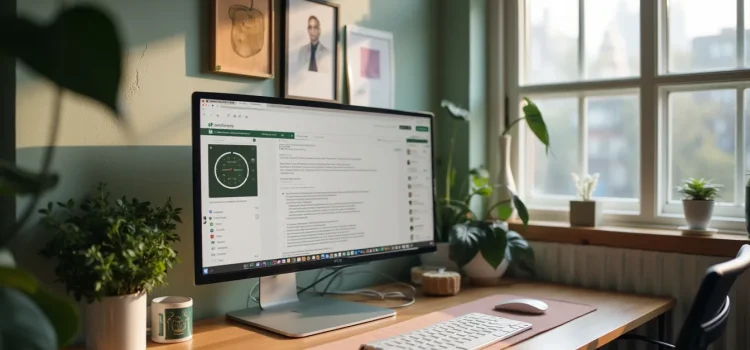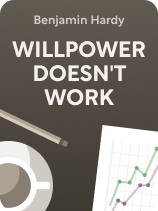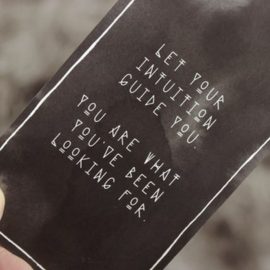

This article is an excerpt from the Shortform book guide to "Willpower Doesn't Work" by Benjamin Hardy. Shortform has the world's best summaries and analyses of books you should be reading.
Like this article? Sign up for a free trial here.
Are you struggling to stay focused on your goals? Do you find yourself constantly battling distractions and temptations?
It can be a game-changer when you remove distractions from your environment. By eliminating distractions, you’ll conserve willpower and make progress toward your objectives. This process involves tackling technological, social, and personal obstacles that stand in your way.
Read more to learn how to create an environment that supports your success.
Remove Distractions
Hardy recommends eliminating anything that doesn’t get you closer to your goals. This is important because, by doing so, you’ll remove distractions that drain your limited reserves of willpower. Therefore, Hardy says you should identify what in your environment is helping you—and ruthlessly get rid of everything else.
We’ll discuss how to minimize the technological distractions in your life, how to minimize the distractions that come from other people, and (briefly) how to minimize the various other distractions you regularly face.
Remove Technological Distractions
One of the biggest distractions in your life is probably technology, particularly your phone. While you’re trying to work, your phone is a source of constant, endless temptations ranging from social media to videos and games. And while you’re trying to rest, it’s a source of stress because it allows people to contact you and make demands on your time and energy.
Hardy says you can eliminate many of these distractions by identifying which phone apps really help you to either work or relax and deleting everything else. Then do the same with your computer.
(Shortform note: The constant temptations from phones and other technology may be even more disruptive than Hardy suggests. In ADHD 2.0, Edward Hallowell and John Ratey—two doctors who specialize in treating ADHD—say that even people who don’t have ADHD are beginning to show symptoms mimicking the condition. The authors explain that these ADHD-like traits, such as the inability to stay focused and the compulsive need to check your phone, are the result of people trying to keep up with a constant barrage of information that comes in more quickly than their brains can process it.)
Remove Human Distractions
Aside from technology, Hardy says that the biggest thing holding you back is probably relationships with the wrong kinds of people: friends and family members who tempt you away from what you want to achieve.
Therefore, it’s crucial to stop spending so much time and energy on people who don’t support you. This includes anyone who insults and belittles you, encourages you to do things that aren’t in line with your goals, or puts excessive demands on you. You can hopefully accomplish this just by having some frank conversations and setting clear boundaries with those people. However, if they refuse to respect your boundaries, your best option is to remove them from your life.
To illustrate this point with an extreme example, a recovering alcoholic is in great danger of being tempted away from their goal of sobriety by friends who still drink. If those friends won’t respect the person’s choice to give up alcohol, the only solution is for the person in recovery to cut off contact, thereby eliminating that temptation.
The author acknowledges that managing your relationships like this is difficult; it requires willpower. However, in the long run it requires a lot less willpower than you’d spend resisting people’s temptations.
| Enforce Your Boundaries by Setting Consequences Hardy discusses the importance of managing your relationships with other people, but he doesn’t give much actionable advice on how to do that. In her book Set Boundaries, Find Peace, therapist and social worker Nedra Glover Tawwab explains that the key is to reinforce your boundaries by setting consequences for violating them. Typically, the first time someone violates one of your boundaries, you should simply tell them so; it was probably an honest mistake, or perhaps they weren’t even aware you had that boundary. However, if they repeatedly violate that boundary, you need to inform them of the consequences. For example, if you have a friend who keeps messaging you during work hours, you might warn them that you’ll block them next time it happens. If they keep messaging you, make sure you actually block them—following through on your warnings is crucial, otherwise people will learn that they can freely trample on your boundaries. Finally, Tawwab agrees with Hardy that cutting people out of your life should be a last resort, but you should still be prepared to do it. Some people will make it clear that they simply do not and will not respect your boundaries, no matter the consequences; you’ll be better off without such people. |
Remove Other Distractions
Hardy says that technology and people are two of the biggest distractions in most people’s lives, as well as the hardest to eliminate. However, you’re almost certainly weighing yourself down with other, lesser distractions as well. Remember: Anything that’s not actively helping you is an unnecessary drain on your willpower.
Therefore, think carefully about anything else that might be cluttering up your life and tempting you away from your goals. Some common examples include junk food, recreational drugs, and old projects that you’ve been “meaning to get around to” for years.
Counterintuitively, you’ll probably also find that this process involves eliminating some of your goals. That’s because those goals interfere with more important ones. For example, if one of your goals is to host a weekly podcast, but doing so interferes with your goal of spending more time with your family, it’s most likely time to bring that podcast to an end.
| Tip: Check in With Your Feelings It can be hard to know what’s really beneficial to you and what isn’t. This is especially true when it comes to rest, for which there’s often no concrete way to measure your progress—and, therefore, no sure way of knowing what’s helping you toward your goals. If you’re having trouble deciding what to keep and what to get rid of, try taking a break from logic and checking in with your emotions instead. Organizing consultant Marie Kondo describes this process in her book The Life-Changing Magic of Tidying Up. Kondo suggests picking up one thing at a time to see if it “sparks joy”—in other words, do you notice an emotional connection with that item, or do you feel nothing toward it? Using this method, you’ll often be able to feel whether something’s valuable to you, even if you can’t rationally explain why. If something makes you feel that connection, keep it; if not, you can safely throw it away. While Kondo is discussing physical objects, you can use this same process for anything you’re not sure about. You’ll find that checking in with your feelings is equally effective for digital items (like phone apps), as well as purely conceptual things like goals and old projects. |
Exercise
Think of a distraction that regularly drains your willpower, such as an app on your phone or something tempting in your work environment. How could you remove that distraction from your life?

———End of Preview———
Like what you just read? Read the rest of the world's best book summary and analysis of Benjamin Hardy's "Willpower Doesn't Work" at Shortform.
Here's what you'll find in our full Willpower Doesn't Work summary:
- Why you can’t just “will” your way to success
- Practical ways to optimize your working and resting environments
- How you can make reaching your goals inevitable






